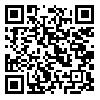Volume 3, Issue 2 (summer 2017)
J Health Res Commun 2017, 3(2): 26-34 |
Back to browse issues page
Download citation:
BibTeX | RIS | EndNote | Medlars | ProCite | Reference Manager | RefWorks
Send citation to:



BibTeX | RIS | EndNote | Medlars | ProCite | Reference Manager | RefWorks
Send citation to:
Morovati P, Gholami Borujeni F. Risk Assessment of Healthcare Waste by Preliminary Hazard Analysis Method. J Health Res Commun 2017; 3 (2) :26-34
URL: http://jhc.mazums.ac.ir/article-1-234-en.html
URL: http://jhc.mazums.ac.ir/article-1-234-en.html
Abstract: (7457 Views)
Introduction and purpose: Improper management of healthcare waste (HCW) can pose considerable risks to human health and the environment and cause serious problems in developing countries such as Iran. In this study, we sought to determine the hazards of HCW in the public hospitals affiliated to Abadan School of Medicine using the preliminary hazard analysis (PHA) method. Methods: In this descriptive and analytic study, health risk assessment of HCW in government hospitals affiliated to Abadan School of Medicine (4 public hospitals) was carried out by using PHA in the summer of 2016. Results: We noted the high risk of sharps and infectious wastes. Considering the dual risk of injury and disease transmission, sharps were classified in the very high-risk group, and pharmaceutical and chemical and radioactive wastes were classified in the medium-risk group. Sharps posed the highest risk, while pharmaceutical and chemical wastes had the lowest risk. Among the various stages of waste management, the waste treatment stage was the most hazardous in all the studied hospitals. Conclusion: To diminish the risks associated with healthcare waste management in the studied hospitals, adequate training of healthcare workers and care providers, provision of suitable personal protective and transportation equipment, and supervision of the environmental health manager of hospitals should be considered by the authorities.
Keywords: Assessment, Healthcare waste, Hospital waste, Medical waste, Preliminary hazard analysis, Preliminary risk
Type of Study: Research(Original) |
Subject:
Environmental Health
Send email to the article author
| Rights and permissions | |
 |
This work is licensed under a Creative Commons Attribution-NonCommercial 4.0 International License. |






